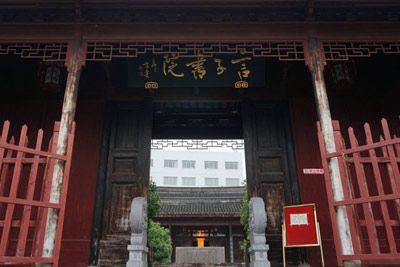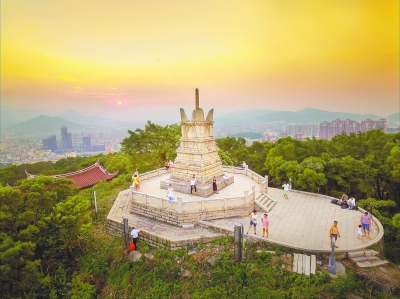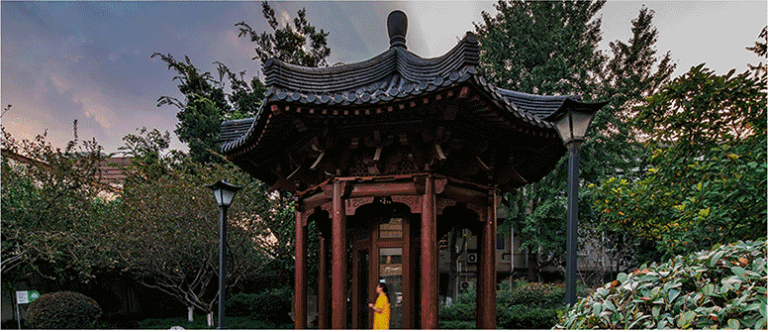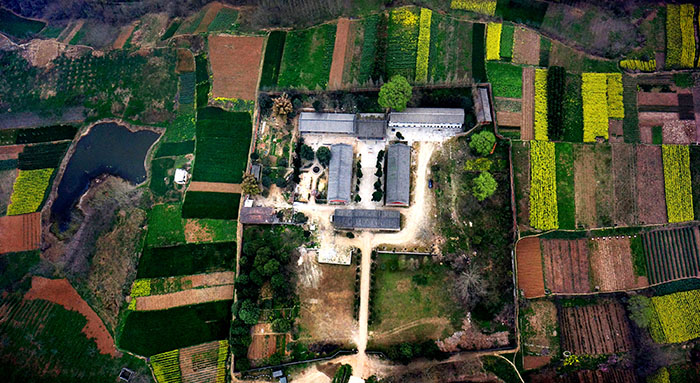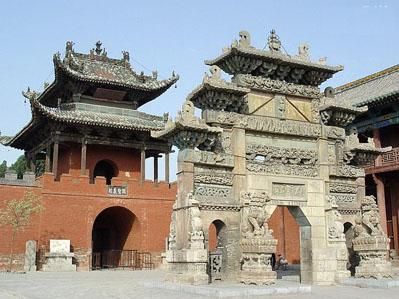Experience the Wonders of Jiaozuo Awenbei: A Comprehensive Travel Guide
An Essential Guide to Visiting Jiaozuo Awenbei
In This Guide
- An Essential Guide to Visiting Jiaozuo Awenbei
- The Rich History of Jiaozuo Awenbei
- Main Highlights: What to See at Jiaozuo Awenbei
- Planning Your Visit: A Practical Guide
- Tickets, Hours, and Booking
- How to Get There
- Local Cuisine and Accommodation
- Frequently Asked Questions
- Final Thoughts on Your Trip
Nestled in the captivating landscapes of Jiaozuo, Henan Province, the Awenbei (阿文碑) is a significant historical artifact that tells a story of cultural fusion and religious significance. Located within the serene confines of the Shui Nan Guan Mosque (水南关清真寺), this ancient monument stands as a testament to the rich tapestry of Chinese Islamic history. The Awenbei, inscribed during the late Song to early Yuan dynasties, serves not only as a religious relic but also as a critical piece of evidence reflecting the migrations of the Hui people into central China.
Visitors to the mosque are greeted by the tranquil ambiance that surrounds the Awenbei, often accompanied by the soothing sounds of prayer and reflection. The monument itself, a beautifully crafted stone tablet, is intricately engraved with Arabic script, representing a bridge between cultures and illustrating the profound influence of Islam in the region. As one explores this site, the significance of the Awenbei becomes clear; it embodies the historical connections between the Middle East and China, offering insights into the spread of Islamic culture and the integration of the Hui community within the broader Chinese society.
Traveling to Jiaozuo to witness the Awenbei is more than just a journey to a historical site; it’s an opportunity to delve into the stories of those who walked these paths before us. The mosque and its remarkable tablet invite contemplation and admiration, making it an essential stop for history enthusiasts and curious travelers alike. As you step into this sacred space, prepare to be enveloped by the stories etched in stone, waiting to be uncovered.
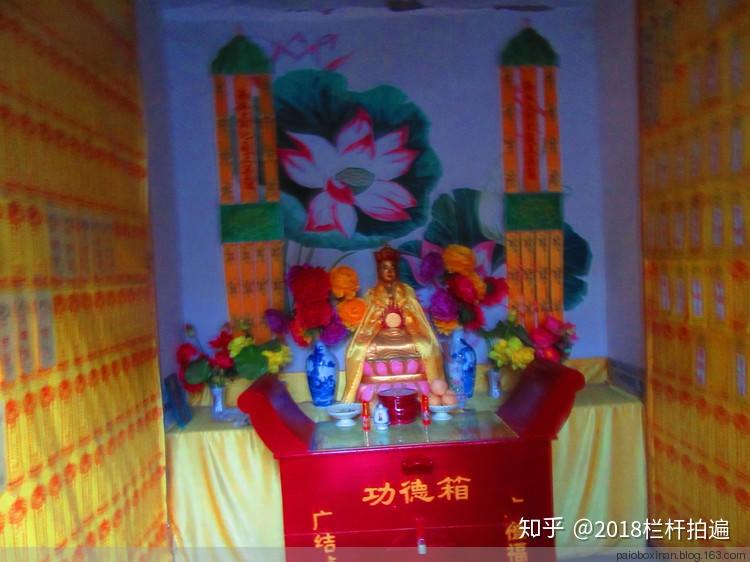
Jiaozuo Awenbei.
The Rich History of Jiaozuo Awenbei
The Jiaozuo Awenbei, or the Awen Monument, is a significant artifact located within the Water South Pass Mosque in Qinyang, Henan Province, China. This monument, which dates back to the late Song to early Yuan dynasties, is a testament to the historical presence and influence of the Hui ethnic group in central China.
The Awenbei is a stone inscription that was originally embedded in a wall niche known as the “Miha Lab” within the mosque. It serves as a vital historical record and cultural artifact, illuminating the migration patterns and integration of the Hui people into the region. The Hui, who are predominantly Muslim, have a rich history that intertwines with the broader narratives of trade, migration, and cultural exchange along the Silk Road.
Although the exact details of its inscription remain a subject of scholarly interest, it is recognized for its contributions to understanding the dissemination of Arabic script and Islamic teachings in China. The monument bears witness to the cultural interactions between the local Chinese population and the Muslim traders and settlers from the West.
In 2013, the Jiaozuo Awenbei was designated a national key cultural relic, further solidifying its importance as a site for research in the fields of archaeology, art history, and the study of Islamic influence in China. This recognition not only highlights the monument’s artistic value but also emphasizes its role in the broader context of Islamic heritage within the country.
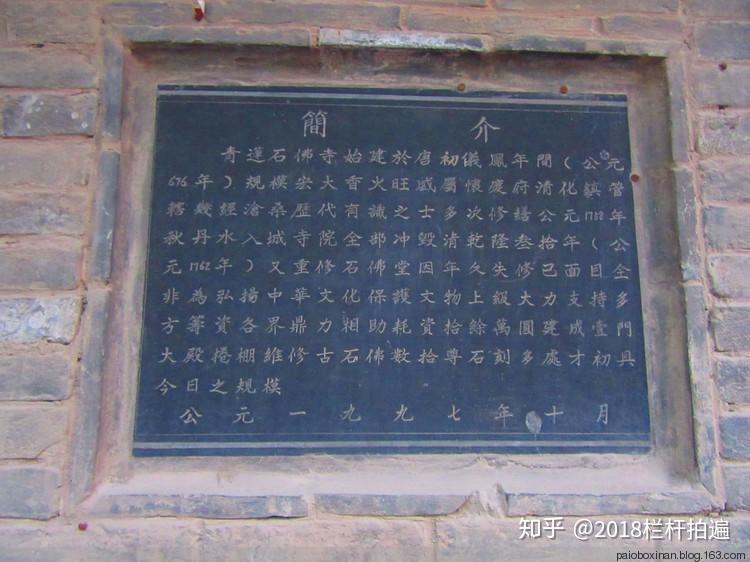
Jiaozuo Awenbei.
Visitors to the monument can appreciate not only its historical significance but also the intricate artistry that characterizes the inscription. The Awenbei stands as a symbol of the deep-rooted connections between different cultures, inviting travelers and scholars alike to reflect on the historical narratives that have shaped the region over centuries. As a site of pilgrimage and learning, it continues to inspire curiosity about the rich tapestry of Chinese history and the enduring legacy of the Hui people.
Main Highlights: What to See at Jiaozuo Awenbei
Nestled within the serene landscapes of Jiaozuo, the Awenbei, or “Arabic Inscription Stele,” is a captivating historical gem that offers visitors a glimpse into the rich cultural tapestry of ancient China. This stele is located in the Shui Nan Guan Mosque, a revered site that dates back to the late Song Dynasty and serves as a significant testament to the Islamic influence in the region.
Key Features of Awenbei
-
Historical Significance: The Awenbei is considered a vital artifact that chronicles the migration of the Hui people—the Muslim ethnic group in China—into the Central Plains during the Yuan Dynasty. This stele is engraved with Arabic script that provides insights into the early presence of Islam in this part of the country.
-
Architectural Context: Situated within the Shui Nan Guan Mosque, the stele is part of a larger complex that reflects traditional Islamic architectural styles. The mosque itself, although reconstructed in the 1990s, retains elements that echo its ancient origins, creating a harmonious setting for the Awenbei.
-
Cultural Heritage: Recognized as a national key cultural relic, the Awenbei is not only a piece of art but also a scholarly resource for understanding the development of Islam in China. The stele contributes to research on the spread of Arabic language and culture, making it a must-visit for historians and cultural enthusiasts alike.
-
Tranquil Atmosphere: Visitors to the mosque will find a peaceful ambiance, ideal for reflection and appreciation of the historical context. The quiet courtyards and thoughtfully arranged gardens surrounding the mosque enhance the experience, allowing for a moment of respite amid the exploration of the past.
-
Accessibility: Located just a short distance from the city center, the Shui Nan Guan Mosque and its Awenbei can be easily reached by local transportation, making it a convenient stop for travelers looking to delve into the historical and cultural layers of Jiaozuo.
-
Guided Tours and Information: Knowledgeable guides often lead tours that explain the significance of the Awenbei, providing visitors with a deeper understanding of its historical and cultural implications. This educational component enriches the experience, allowing guests to connect more profoundly with the site.
In summary, a visit to the Awenbei offers a unique opportunity to engage with a pivotal moment in the history of Islam in China. Whether you’re a history buff, a cultural explorer, or simply seeking a tranquil retreat, the Awenbei at Shui Nan Guan Mosque promises an enriching experience that resonates well beyond its ancient stones.
Planning Your Visit: A Practical Guide
Practical Guide to Jiaozuo Awenbei (阿文碑)
Located in the heart of Qinyang, the Jiaozuo Awenbei is a historical treasure housed within the Shui Nan Guan Mosque. This site is not only significant for its architectural beauty but also for its rich cultural heritage. Below is a comprehensive guide to help you make the most of your visit.

Jiaozuo Awenbei.
Getting There
Transportation:
– From Qinyang to Jiaozuo: Regular bus services connect these two cities, making travel convenient. The earliest bus leaves at 9:00 AM, with the return bus options at 15:40 and 17:00.
– Local Transport: Once in Qinyang, taxis are a practical choice for shorter distances. For example, a ride between the Awenbei and nearby attractions usually costs around 5-12 CNY (approximately $0.75 – $1.80 USD). Walking is also an option, especially between closely situated sites.
Visiting Hours
The Shui Nan Guan Mosque and the Awenbei are typically open throughout the day, but specific hours may vary. To avoid disappointments, it’s advisable to check in advance or call ahead.
Admission Fees
Visiting the mosque and the Awenbei is free of charge, making it an accessible option for all travelers. However, donations to support the preservation of the site are appreciated.
What to See
- The Awenbei: This stone monument is a significant artifact dating back to the late Song Dynasty and early Yuan Dynasty. It serves as an important testament to the history of the Hui people in Central China and the spread of Islam.
- Shui Nan Guan Mosque: The mosque itself is a beautiful blend of traditional Chinese and Islamic architectural styles. Take time to explore its serene courtyards and admire the intricate designs.
Best Time to Visit
The ideal time to visit is during the spring (April to June) and autumn (September to November) when the weather is mild and pleasant for walking around.
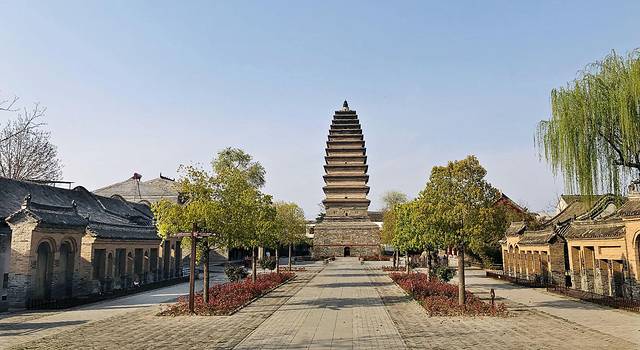
Jiaozuo Awenbei.
Nearby Attractions
- Qinyang Mosque: Just a short distance from the Awenbei, this mosque is known for its charming architecture and peaceful atmosphere.
- Qinyang Museum: A must-visit for history buffs, this museum provides insights into the local culture and history.
- Cultural Parks: The surrounding area features several parks and green spaces perfect for a leisurely stroll after your visit.
Accommodation
If you’re planning to stay overnight, consider these options:
– Green Tree Inn Qinyang: Located about 800 meters from the bus station, this hotel provides comfortable accommodations at affordable rates. Dining options are plentiful in the surrounding area.
– Focus on Value and Comfort: Hotels in Jiaozuo typically offer great value, with many budget-friendly options available that boast good amenities.
Food Options
While traditional Hui cuisine is not particularly highlighted in this region, you can find various local eateries offering simple yet delicious meals. Don’t hesitate to explore street food options for a more authentic experience.
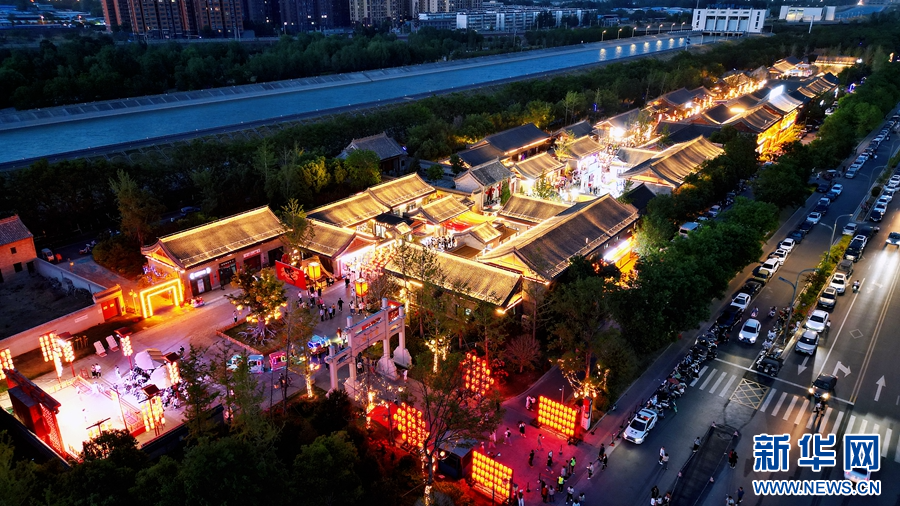
Jiaozuo Awenbei.
Tips for Travelers
- Respect Local Customs: As you are visiting a mosque, dress modestly and be respectful of religious practices.
- Language Barrier: Basic Chinese phrases can be helpful, as English is not widely spoken in rural areas.
- Photography: Always ask for permission before taking photos of people, especially in religious sites.
With its rich history and cultural significance, a visit to Jiaozuo Awenbei is sure to enhance your understanding of the region’s diverse heritage. Enjoy your journey into this fascinating part of China!
Tickets, Hours, and Booking
Visiting Jiaozuo Awenbei (阿文碑) is a fascinating experience for those interested in history and culture. The Awenbei is housed within the historic Shuinan Mosque, known for its beautiful architecture and serene atmosphere. Here’s everything you need to know about tickets and access to this remarkable site.
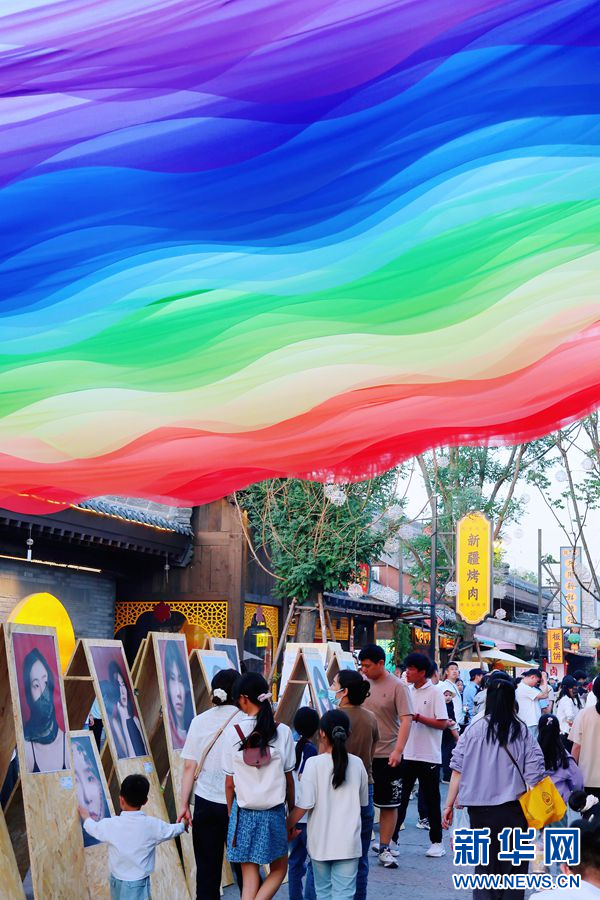
Jiaozuo Awenbei.
Ticket Information
-
Entrance Fee: Admission to the Shuinan Mosque, which includes access to the Awenbei, is generally free. However, it is advisable to check for any specific events or exhibitions that might require a ticket or a small fee.
-
Opening Hours: The mosque is typically open to visitors from 8:00 AM to 5:00 PM daily. It’s best to arrive early in the day to enjoy a quieter experience and ample time to explore the site.
-
Guided Tours: For those interested in a deeper understanding of the Awenbei and its significance, guided tours may be available for a fee. These often provide valuable insights into the history of the mosque and the surrounding area.
-
Accessibility: The site is designed to be accessible for visitors of all abilities, ensuring everyone can enjoy the rich cultural heritage it offers.
-
Location and Transportation: The Shuinan Mosque is conveniently located in Jiaozuo City. Public transportation options are available, including buses and taxis, making it easy to reach the site from various parts of the city.
When planning your visit, consider checking local tourism websites or contacting the mosque directly for the most current information on hours and any potential changes in access or fees. Enjoy your journey through history at Jiaozuo Awenbei!
How to Get There
When planning your visit to Jiaozuo Awenbei, understanding the transportation options available is crucial to ensure a smooth experience. Here’s a comprehensive guide to navigating the region.
Getting There
By Train:
Jiaozuo is well connected by rail, making it an accessible destination for travelers coming from major cities. The Jiaozuo Railway Station serves as the key hub, with high-speed trains arriving frequently from cities like Beijing, Zhengzhou, and Xi’an. Once you arrive at the station, you can easily transfer to local transportation options.

Jiaozuo Awenbei.
By Bus:
Long-distance buses also operate from various cities within Henan Province to Jiaozuo. The main bus terminal, located in the city center, offers connections to surrounding areas. For instance, buses run regularly between Jiaozuo and nearby towns like Qinyang and Xinxiang, ensuring you can explore the region without hassle.
Local Transportation
Public Buses:
Jiaozuo has a reliable public bus system that connects key attractions, including the Water South Pass Mosque, where the Awenbei is located. Buses are an economical way to get around, with routes covering most urban areas and many historical sites. Keep in mind that schedules can vary, so checking timetables in advance is advisable.
Taxis and Ride-Hailing Services:
For a more convenient option, taxis are readily available and affordable. They can be hailed on the street or booked through local ride-hailing apps like DiDi. A typical fare for short distances within the city ranges from 10 to 20 yuan, making it a practical choice for travelers looking to save time.
Walking:
Many of Jiaozuo’s attractions are within walking distance of each other, especially in the city center. If you enjoy leisurely strolls, consider exploring on foot. Not only will you experience the local culture up close, but you’ll also have the chance to discover hidden gems along the way.

Jiaozuo Awenbei.
Getting Around to Key Attractions
From Jiaozuo Railway Station:
– To Jiaozuo Awenbei: The Awenbei is located within the Water South Pass Mosque. From the railway station, you can take a taxi directly to the mosque, which should take around 15 minutes.
– Public Bus: Alternatively, you can catch a bus from the station to the mosque. Look for lines that head towards the central area of Jiaozuo.
From Local Hotels:
Most hotels in Jiaozuo are situated close to the main attractions. If your accommodation is within the city center, you can easily walk to places like the Water South Pass Mosque. For those staying farther away, taxis or public buses can facilitate your journey.
Tips for Travelers
- Plan Ahead: While public transportation is generally reliable, it’s wise to check schedules and routes beforehand, especially if you plan to visit during peak travel times or holidays.
- Language: English is not widely spoken, so consider downloading translation apps or having a phrasebook handy to communicate with drivers or locals.
- Cash: While mobile payment options are popular in China, having some cash on hand can be useful for small purchases or in areas where digital payments are not accepted.
By understanding these transportation options, you can focus on enjoying the rich history and culture that Jiaozuo Awenbei has to offer. Safe travels!
Local Cuisine and Accommodation
When exploring Jiaozuo Awenbei, food and accommodation options abound, offering travelers a taste of local flavors and comfortable places to rest.
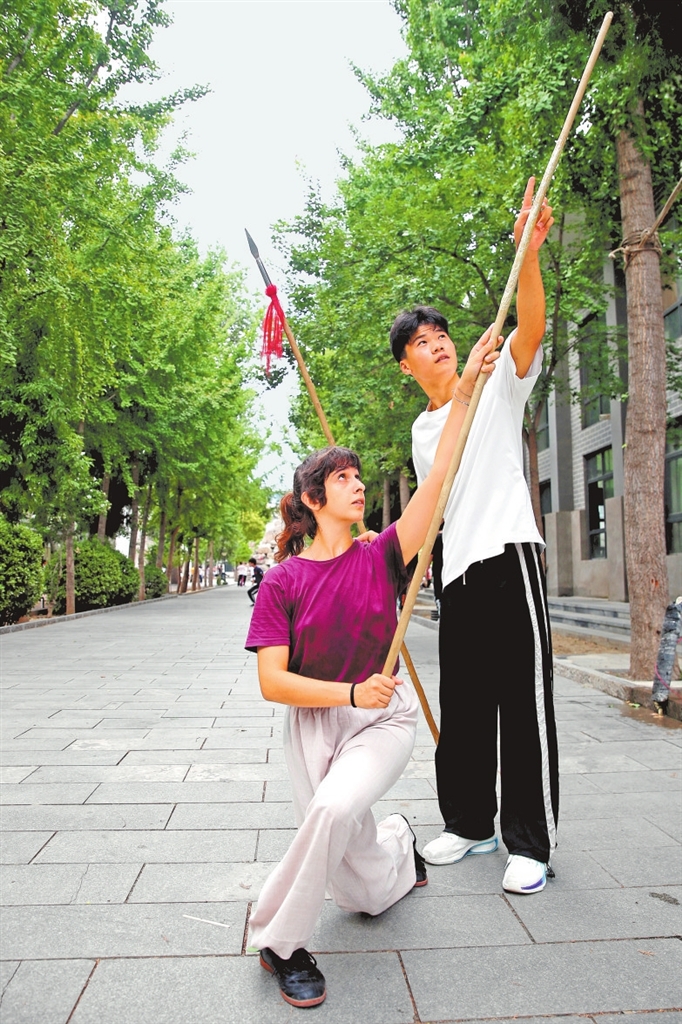
Jiaozuo Awenbei.
Accommodation
For a pleasant stay, the GreenTree Inn in Qinyang is an excellent choice. Located just 800 meters from the bus station, this hotel is ideally situated near bustling streets filled with small eateries and shops. Guests can enjoy spacious rooms equipped with modern amenities, ensuring a cozy atmosphere after a day of sightseeing. The hotel also offers a satisfying breakfast at an affordable price, making it a convenient option for budget travelers.
In Jiaozuo, you’ll find various hotels near the North Square of the Jiaozuo Bus Station, known for their quality and budget-friendly rates. Many establishments here provide clean and comfortable accommodations, perfect for those looking to explore the area without breaking the bank. The proximity to public transport makes these hotels particularly appealing for travelers wishing to visit nearby attractions.
Dining
While Jiaozuo may not be renowned for specific culinary specialties, there are plenty of options for casual dining. Local eateries serve up a variety of dishes, catering to diverse tastes. You can find typical Chinese fare, including noodles, dumplings, and rice dishes, in the small restaurants scattered throughout the city.

Jiaozuo Awenbei.
If you’re looking for a quick bite, head to one of the many street vendors offering snacks like jianbing (Chinese crepes) and baozi (steamed buns) that are both delicious and easy on the wallet. For a more substantial meal, consider visiting a local restaurant where you can enjoy regional dishes in a relaxed setting.
Overall, whether you’re resting your head at a welcoming hotel or savoring the local cuisine, Jiaozuo Awenbei offers a satisfying blend of comfort and culinary exploration, ensuring your visit is both enjoyable and memorable.
Frequently Asked Questions
Frequently Asked Questions about Jiaozuo Awenbei (阿文碑)
-
What is Jiaozuo Awenbei?
Jiaozuo Awenbei, located in the Water South Pass Mosque (水南关清真寺) in Qinyang City, is a significant historical artifact inscribed during the late Song to early Yuan dynasties. It serves as a testament to the history of the Hui people in the central plains of China. -
How can I visit the Jiaozuo Awenbei?
The Awenbei is accessible through the Water South Pass Mosque, which can be reached by public transportation or taxi from central Qinyang. Be sure to check local bus schedules for the most convenient routes. -
What is the historical significance of Awenbei?
The Awenbei is considered an essential relic for understanding the migration of Hui Muslims into the central plains, the formation of Muslim communities in the area, and the spread of Arabic script in China. It has been designated as a national key cultural relic. -
Is there an entrance fee to the Water South Pass Mosque?
Generally, there is no entrance fee to visit the mosque and see the Awenbei. However, it’s advisable to check for any potential fees or donations during your visit, as policies may vary. -
Are there guided tours available?
Yes, guided tours may be available at the mosque, providing insights into the history and cultural significance of the Awenbei and the mosque itself. It’s recommended to inquire ahead of your visit for tour availability. -
What are the best times to visit?
The best times to visit are during the spring (April to June) and autumn (September to November) when the weather is mild. Early morning visits can also provide a quieter experience. -
Can I take photographs inside the mosque?
Photography policies can vary, so it’s best to ask for permission upon arrival. Respect for the sacredness of the site is paramount, so ensure you follow any guidelines provided. -
What else can I do in Qinyang City?
Besides visiting the Awenbei, Qinyang offers other cultural sites such as the Qinyang Mosque and local museums that showcase the area’s rich history. Exploring nearby attractions, such as the scenic landscapes and ancient temples, can also enhance your experience.
Final Thoughts on Your Trip
Visiting Jiaozuo Awenbei offers a profound glimpse into the rich tapestry of Chinese history and culture. This ancient inscription, nestled within the tranquil surroundings of the Water South Pass Mosque, not only serves as a testament to the enduring legacy of the Hui people but also highlights the intricate connections between the past and present. As you explore this remarkable site, take a moment to reflect on the stories etched in stone—stories that speak of migration, faith, and the resilience of a community.
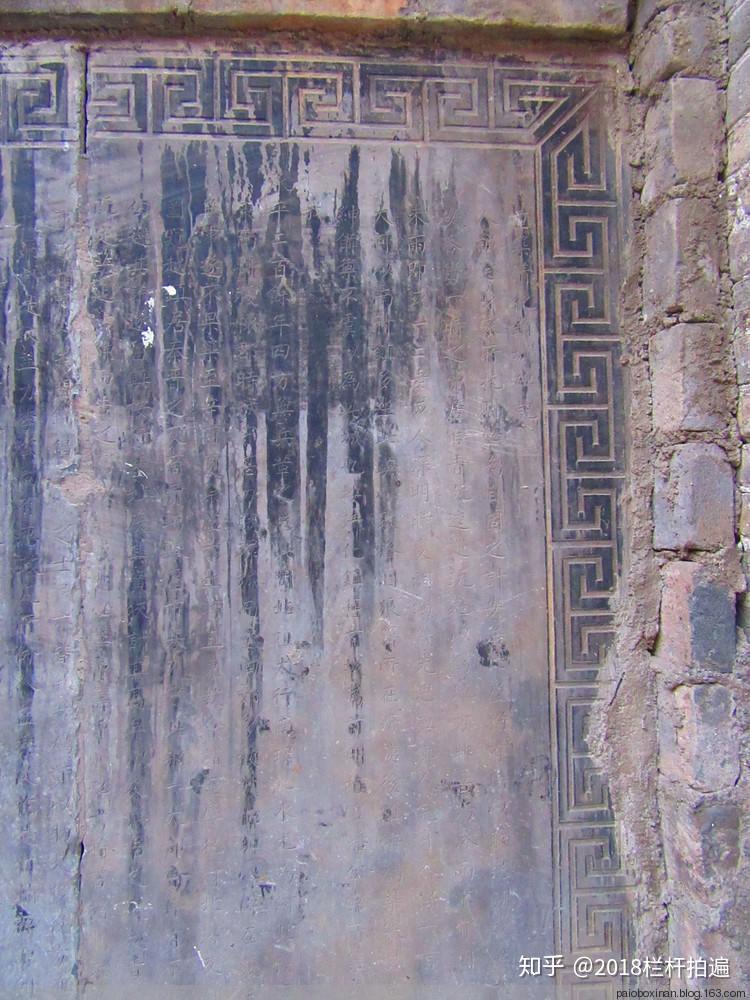
Jiaozuo Awenbei.
The Awenbei stands as a bridge between centuries, inviting travelers to appreciate the beauty of its craftsmanship while deepening their understanding of the cultural exchanges that have shaped this region. Whether you are drawn by a sense of adventure, a passion for history, or a desire to connect with diverse cultures, a visit to Jiaozuo will undoubtedly enrich your journey.
As you leave, carry with you not only the memories of this unique landmark but also a renewed sense of appreciation for the diverse narratives that make up the human experience. In a world that often feels disconnected, places like Jiaozuo Awenbei remind us of our shared heritage and the importance of honoring the past as we navigate our futures.

